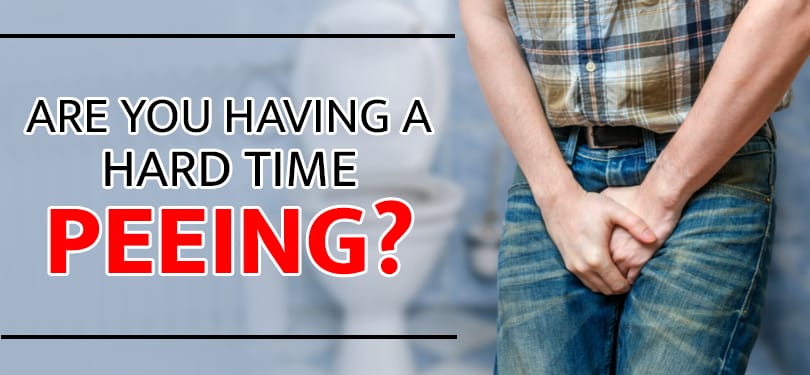Your urine volume tells a lot about your health and lifestyle. It’s your body’s way of telling you about budding complications that we often fail to understand. Urine is the essential fluid that acts as a clearing agent that takes away all the toxins, pollutants, and other necessary substances out from the body. The urine elimination process is the essential filtration process done by your kidneys to purify blood for waste products that buildup timely in the bloodstream.
Our body produces around 800 to 2,000 millilitres of urine per day. Your kidneys are largely dependent on your water intake that determines your pee volume. Keeping yourself hydrated will allow your kidneys to function well that will lessen your threat of developing urinary complications such as kidney stone, urinary tract infection, and kidney infection.
What will happen if urine is not produced in our body?
Having low or no urine output can be dangerous; it’s like clogging a sewage pipe at your home that can expand anytime, gross. This will precisely happen to your health if you ever encounter this situation. Urine helps your body get rid of waste materials that, if left inside for a longer period, can make you vulnerable to a bacterial infection inside your urinary system that consists of- ureters, urethra, bladder, and kidneys. Having no or low urine output is a serious health condition that is spelt as oliguria, leading to decreased urine output.
In this condition, the urinary output of the body decreased to less than 400 millilitres, which sums up less than 13.5 ounces of urine production within 24 hours.
How can we detect oliguria?
Decreased urine output is the primary symptom of oliguria. However, the symptoms of oliguria vary on the cause of low urine output. The primary symptoms of low urine output are-
- Having low or no urges to pass urine
- Having urine darker in colour than normal
- Having urine in lightish red confirms hematuria
But having low urine output doesn’t necessarily confirm kidney complications or any other health conditions. It’s recommended to get yourself tested before undergoing any kind of medication. If you feel any of the following symptoms in your health, it’s advised to see a doctor in time. Low urine output is a very common health condition that can be cured with routine medications if detected in time.
What causes oliguria?
Low urine output can result from various environmental and biological stresses ranging from mild conditions to serious illnesses, such as-
Severe dehydration
People who drink less water are likely to have low urine output. Typically, dehydration occurs when you suffer from any serious illness, such as diarrhoea, loose motions, and urinary tract infection. It’s advised to drink around six to seven glasses of water every day.
Trauma or infection
Any condition or injury can make your body go into shock that reduces blood supply to your organs. Shock is a serious medical emergency, and a person requires immediate medication.
Urinary tract infection
UTI is a urinary complication that mainly occurs due to poor hygiene. In UTI, a bacteria naturally present in your large intestines moves out from the anus and enters your bladder, where it infects the whole urinary system. If it gets serious, UTI can also affect one or both kidneys.
This condition obstructs the urinary tracts and prevents the protein from releasing out from the body. Obstruction can create some common health conditions, such as-
- Nausea
- Swelling
- Fever
- Body pain
- Vomiting
Medications
Ingestion of certain medicines can also affect your urine output. Here we’ve listed some medicines that can possible decrease urine production-
- Nonsteroidal anti-inflammatory drugs ( NSAIDs)
- High blood pressure medicines, such as ACE inhibitors
- Gentamicin, an antibiotic
Is there any permanent cure for curing oliguria?
Yes, several medications are available that can help you with this problem, but most of the medicines used during medication are lab-prepared and can only give you short-term relief. Also, lab-prepared medications are based on the formulation of several harmful chemicals that can leave some severe physical abnormalities in your body, such as-
- Constipation
- Stomach heat
- Internal bleeding
- Suicidal thoughts
- Anxiety and depression
- Loss of appetite
- Cardiovascular disease
- Headaches
If you’re looking for a genuine revival of your health, then try Ayurvedic treatment for low urine output.
Why Ayurveda?
Ayurvedic treatment is one of the oldest Indian systems of medicine that has been passed down from generations in India as is still in practice. Ayurveda has a treasure of solutions for various serious ailments that even modern medicine is still looking up to. The ayurvedic treatment uses a distinctive approach to cure health problems naturally by making people incline towards good lifestyle habits, such as good sleep, a healthy diet, yoga, and meditation that promotes disease-free life. Ayurvedic treatment is about working and healing the physiological aspects of the disease. Still, the treatment also focuses on maintaining and strengthening the connection between mind, body, and soul that is considered a true remark of good health.
How can Ayurveda cure oliguria?
Ayurveda has various combinations of remedies that can cure low urine output naturally by working on the main cause of the problem. Low urine out can strongly indicate various kidney complications, such as kidney stones, urinary tract infection, kidney infection, and enlarged prostate that obstruct the urinary passageways and prevent urine from releasing out. Ayurvedic treatment for low urine output Effectively removes obstruction, swelling or inflammation occurring inside the kidneys and interferes with their functioning.

